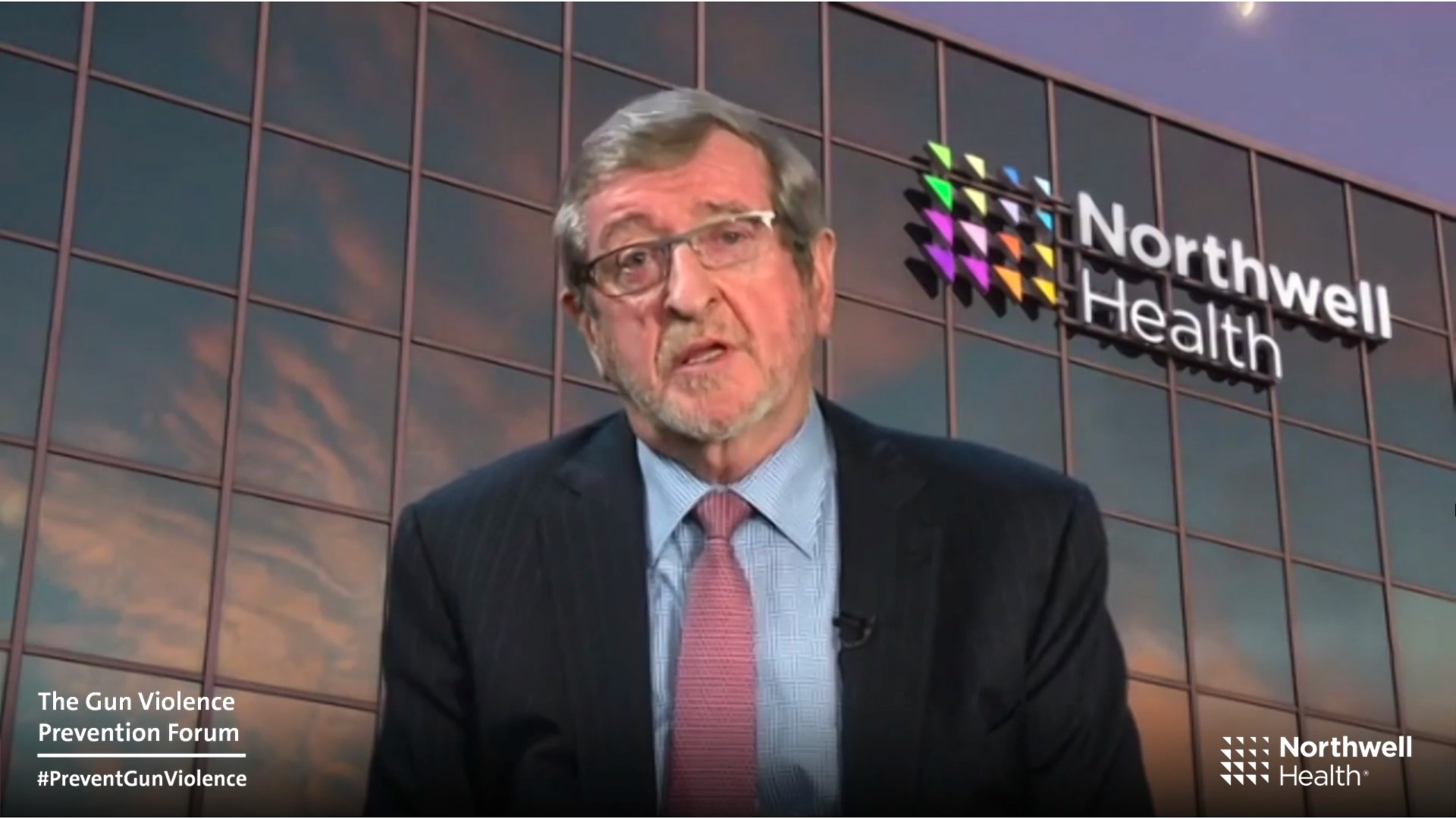On Thursday, Northwell Health hosted its second annual Gun Violence Prevention Forum, which joined leaders across health care and other fields to actively discuss gun violence as a public health issue.
The conference highlighted the critical issues facing gun violence in the United States, including public policy, advocacy, and the role of government; corporate America, and finding a middle ground; and how health care partnerships can make a difference.
In his opening remarks, Northwell President and CEO Michael Dowling emphasized the importance of discussing the issue in the middle of the pandemic.
“This is a public health emergency and it’s on us to keep the conversation going and work together to find solutions,” Dowling said. “Even amidst the pandemic, we should not step aside. We will succeed with COVID-19, but we have to make sure we deal with the other emergency – gun violence.”
Michael Bloomberg, founder of Bloomberg LP and Bloomberg Philanthropies and co-founder of Everytown for Gun Safety and Mayor of New York City (2002-2013) was among the guest speakers at the event.
“The pandemic is intensifying so many other long-standing persistent public health issues, including gun violence,” Bloomberg said. “We all have a responsibility to do even more. Because if we grow the gun sense movement to include even more allies we really can save a lot more lives in communities across America.”
Former Congresswoman Gabrielle Giffords, who was the victim of gun violence when she was shot in the head during a mass shooting that killed six people and injured 12 others, spoke on a panel with Rep. Brian Fitzpatrick (R-Pennsylvania) about gun ownership and the role of government to enact reasonable measures on gun control.
“We are at a crossroads,” Giffords said. “We can let the shooting continue, or we can act. We can protect our families, our future. We can vote. We can be on the right side of history.”
Fitzpatrick, a former FBI special agent who carried a weapon as part of his job, said that transparency was crucial in passing gun safety legislation.
“Policy is a huge piece of it,” Fitzpatrick said. It’s not everything, but it’s a big piece today. And including inclusive policies, obviously, legislation, both from the federal and state and sometimes a local level. And that will get you a long way to solving the problem, but it’s never going to be everything. We need a lot of openness and honest, transparent conversations with people that think differently about this issue to try to bridge that gap and bring people together. Because the one thing that binds us all together is we love our loved ones, and our children, and our neighbors, and our community members. And we don’t want to see anybody get hurt.”
Sen. Chris Murphy (D-Connecticut), who has fought for solutions to gun violence after 20 children and six educators were killed in a mass shooting at Sandy Hook Elementary School, said the problem is bigger than the astounding number of people killed every year.
“There are the family and friends who experience trauma after the death of a loved one,” Murphy said, adding that children exposed to gun violence “have levels of PTSD that are just as high as returning soldiers from Iraq or Afghanistan. These children can’t learn, they can’t cope. They lack resiliency skills because the circuitry of their brains has been changed by the constant exposure to fear of gun violence all the time.”
In one of the last events of the agenda, Moms Demand Action for Gun Sense in America founder Shannon Watts interviewed Calandrian Simpson Kemp, whose son George Kemp Jr. was shot and killed in Richmond, Texas in September of 2013.
“I’m seven years into this trauma, and it’s really hard for me to self identify because I’m not that same person like I used to be,” Kemp said. “The challenge is telling myself that everything from the local, state and federal level, there’s so many different gun laws and things that are out there trying to ensure that everybody that can use their center of influence is exercising in those spaces to be able to change the gun laws and keep our children safe.”



